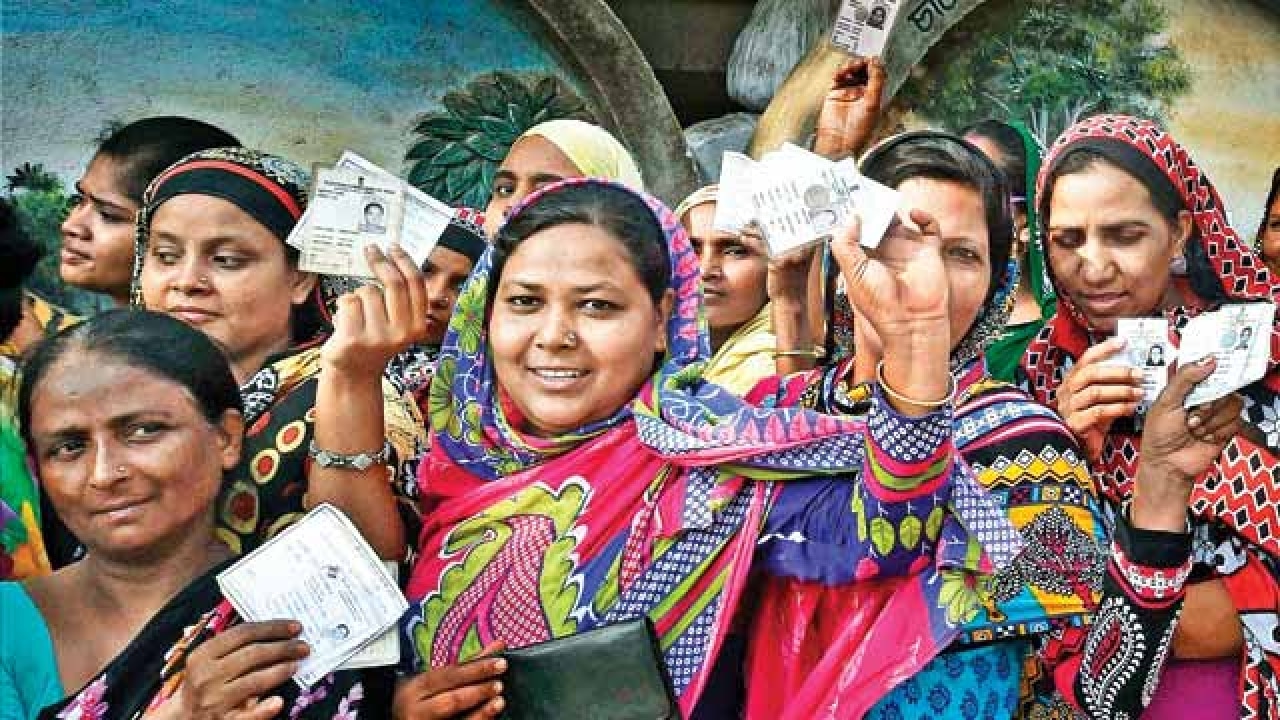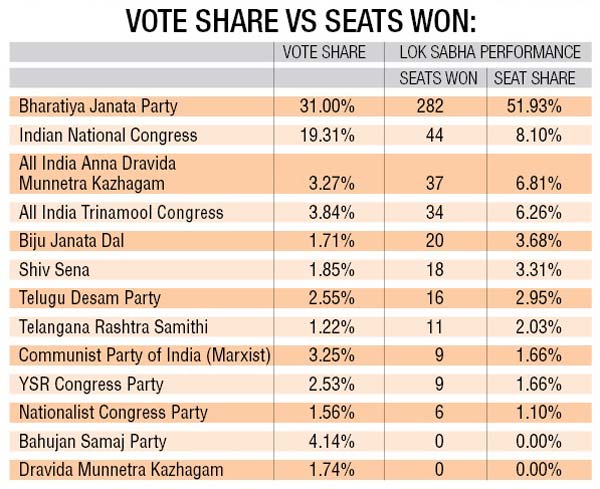
Almost two decades after then Chief Election Commissioner TN Seshan initiated electoral reforms by disciplining political parties, Finance Minister Arun Jaitley deserves kudos for reducing cash donations to political parties under the anonymous category to Rs 2000 from the existing Rs 20,000. Since 2014, Prime Minister Narendra Modi has been underlining the need for poll reforms time and again. He has sought to change poll funding rules and hold simultaneous elections to the Lok Sabha and state assemblies. With key state assembly and local polls happening every year, the Model Code of Conduct, coupled with deployment of senior officers, hits developmental programmes adversely.
At a macro level, these reforms, also suggested by the Election Commission to the Prime Minister’s Office way back in 2004, deserve full implementation to cleanse the system of malpractices. But at a micro level, there is room to ponder whether the electoral system, adopted 67 years ago, has succeeded in reflecting the verdict and broad public opinion. The 2012 Uttar Pradesh Assembly elections reveal that few winning candidates could secure over 30 per cent votes. The SP swept the polls with just 29.15 per cent votes. Essentially, some 70 per cent of a constituency’s electorate voted against eventual winners. Most candidates were victorious by securing just 23 to 29 per cent votes.
The 2014 Lok Sabha polls were hardly different. The BJP secured 31 per cent vote, but won 282 seats, which is 51.93 per cent of Lok Sabha seats. The main Opposition, Congress got 19.31 per cent votes, but was restricted to 44 seats, translating to 8.10 per cent seats in the 543-member Lok Sabha. The AIADMK, with just 3.27 per cent votes, occupies 37 seats. In contrast, the Bahujan Samaj Party was blanked out despite getting 4.14 per cent votes. Its arch rival, the Samajwadi Party managed five seats braving the Modi wave, but polled just 3.37 per cent votes.
Our system of choosing candidates and a smooth transition of power, no doubt, was the best available system. Unlike other South Asian nations, it helped India provide stability, even in divergence and plurality. But after 60 years, a rethink is needed. We may have copied the Westminster system , but Britain while constituting their new assemblies, like in North Ireland, has given up the system to ensure broader representation. A major reason for political parties banking upon caste and communal configurations is that candidates know they can sail through with less than 30 per cent votes. Making it mandatory to secure at least 51 percent votes will force candidates to reach out to every community in their constituency rather than depending on some dominant castes.

When a backward country like Afghanistan can have a second round of election to ensure a wining candidate gets 51 per cent votes, there is no excuse why a progressive country like India cannot emulate this. After elections, a political party can stake claim to power, only with the support of at least 51 per cent of elected representatives. It would be logical to apply the same formula to candidates, that they are declared victorious only when 51 per cent electorate in their constituency reposes faith in them.
Over the years, Lok Satta party founder Jayaprakash Narayan, an Andhra Pradesh MLA, has made a strong case for moving towards proportional representation (PR) as an ‘alternative electoral system’ to curb the dominance of money power and oligopolies in politics. Parties desperate to capture marginal votes have converted fringe issues into mainstream issues. But this PR system is also fraught with danger as it could lead to more of caste-based politics than less of it. It is about time that India looked towards electoral models that can make the system more representative, inclusive, and make democracy not just about counting of numbers.
Quoting Iqbal from a century ago,
Iss Raaz Ko Ek Mard-e-Farangi Ne Kiya Fash
Har Chand Ke Dana Isse Khila Nahin Karte
Jumhooriat Ek Tarz-e-Hukumat Hai Ke Jis Mein
Bandon Ko Gina Karte Hain, Tola Nahin Karte!
A certain European revealed a secret,
Although the wise do not reveal the core of the matter.
Democracy is a certain form of government in which
Men are counted, but not weighed!
The author is Editor, Strategic Affairs, DNA